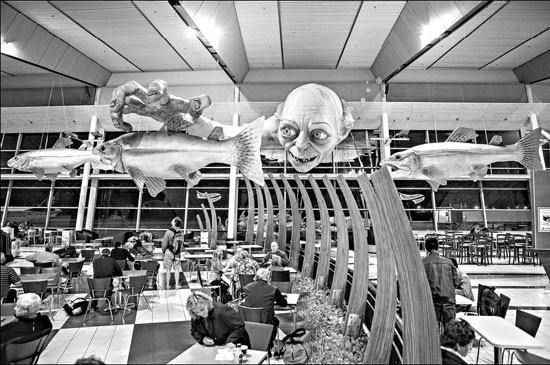With 'Hobbit,' New Zealand fuses film and tourism
WELLINGTON, New Zealand - In Prime Minister John Key's office is a sword given to him by President Obama. It was used, he said, by Frodo Baggins in the "Lord of the Rings" trilogy, and it serves as a reminder that in New Zealand, the business of running a country goes hand in hand with the business of making movies.
Mr. Key's government has taken extreme measures that have linked its fortunes to some of Hollywood's biggest pictures, making this country of 4.4 million people a grand experiment in the fusion of film and government.
As "The Hobbit: An Unexpected Journey," the first of three related movies by the director Peter Jackson, approached its world premiere on November 28 in Wellington (and in December worldwide), there were signs everywhere of the film's integration into Kiwi life- from the giant replica of its Gollum creature at Wellington Airport to the gift shops that are expanding to meet anticipated demand for Hobbit merchandise (elf ears, $14).
But the path to this moment has been filled with controversy. Two years ago, when a dispute with unions threatened to derail the "Hobbit" movies- endangering several thousand jobs and a commitment of some $500 million by Warner Brothers- Mr. Key persuaded the Parliament to rewrite its national labor laws.
The government agreed to contribute $99 million in production costs and add $10 million to the studio's marketing budget. And its tourism office will spend about $8 million in its current fiscal year, and probably more in the future, as part of a promotional campaign to market the country as a film-friendly fantasyland.
For tiny New Zealand, where plans to cut $35 million from the education budget set off national outrage this year, the "Hobbit" concessions were difficult for many to accept, especially since the country had already provided some $150 million in support for the "Lord of the Rings" movies.
And recently the government has been suspected of taking cues from America's powerful film industry in handling a request by United States officials for the extradition of Kim Dotcom, the mogul whose given name was Kim Schmitz, so he can face charges of pirating copyrighted material.















